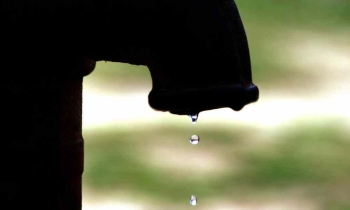The Vienna-based International Press Institute (IPI) has launched a Justice Denied Campaign website which will carry stories meant to sound the alarm, and encourage those with the power to take action to do so.
The campaign highlights the cases of 10 journalists from different regions of the world who have been silenced by imprisonment or physical attack, including murder. For them, justice has failed, and they are either serving unjust prison sentences, or their attackers are benefiting from impunity.
"The authorities have allowed the trail to go cold," IPI Director David Dadge said at the launch on Wednesday. "We have to let the public know that the murder and imprisonment of journalists impacts upon them too, because they lose information about the world around them."
Uta Melzer, IPI Press Freedom Manager, explained that the campaign focuses on a limited number of cases "to ensure that our efforts are meaningful." Dadge added that all of these cases involve countries where the effectiveness of the rule of law is questionable.
The main elements of the campaign involve maintaining visibility and pushing key decision makers to act. For further information on the campaign, as well as regarding the individual cases highlighted, please visit the campaign website at www.freemedia.at/justicedenied. Some of the material is available in multiple languages, including Turkish, Spanish and Serbian.
The stories of impunity include a Turkish journalist likely murdered for daring to question fundamentalist views, a Mexican crime reporter who simply disappeared, one of many Sri Lankan journalists caught up in the brutality of their country’s civil conflict, and an outspoken press freedom advocate shot dead for resisting restrictions on the press in the Gambia.
The stories of imprisonment include a group of Cuban journalists arrested in a massive crackdown triggered by a petition for reforms, an Azeri singled out for continuous legal persecution for his writings, and two Iranian journalists facing serious charges, including the death penalty, after addressing the plight of the country’s Kurdish community.









